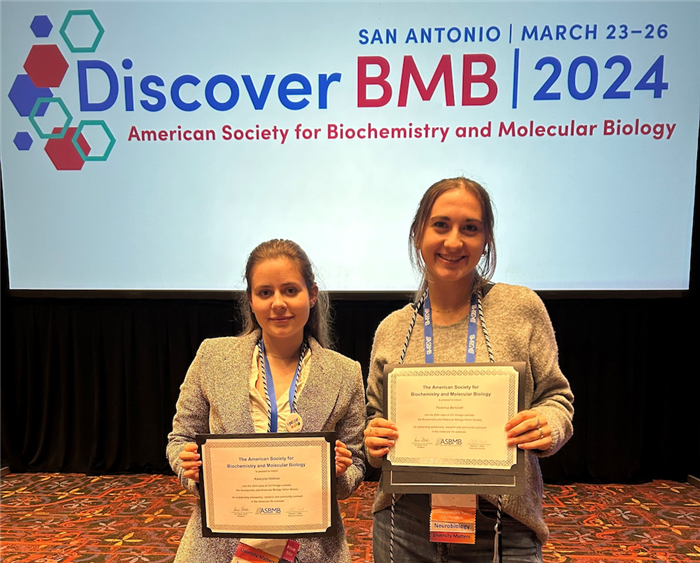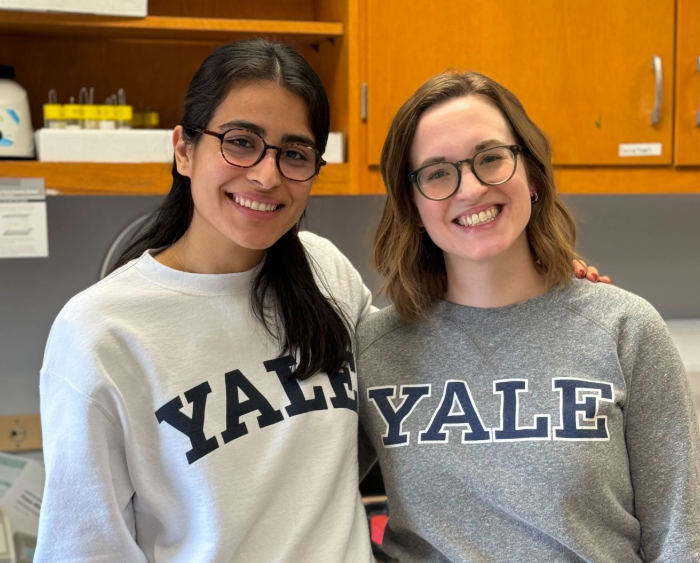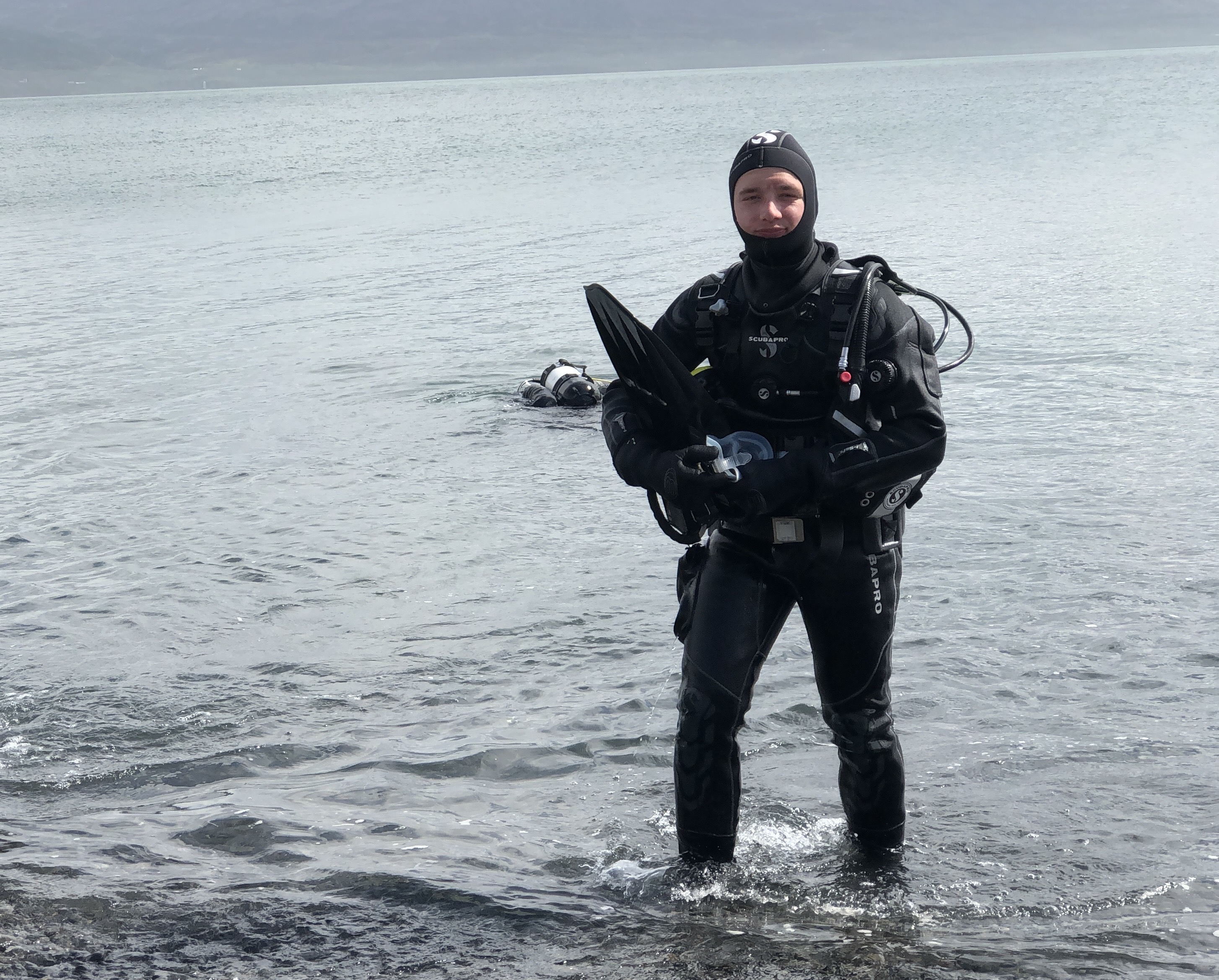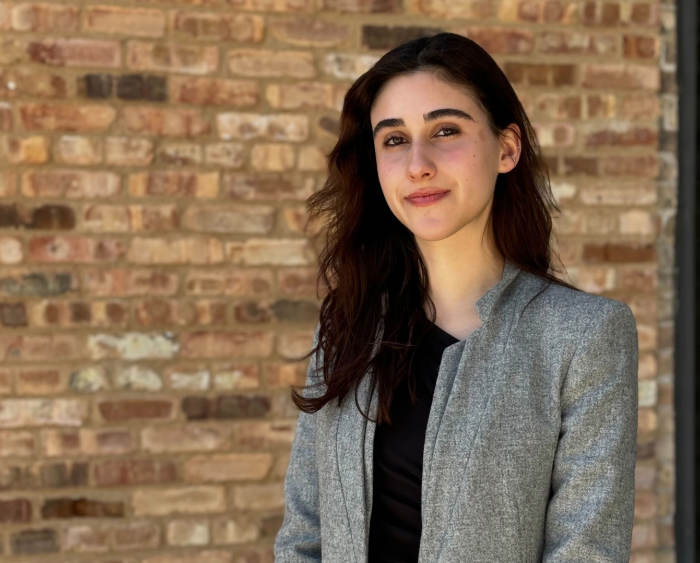Research experience provides valuable skills and a foundation of knowledge that will serve students far beyond Lake Forest College
Lake Forest College students engage in research with faculty mentors through formal programs, volunteer opportunities, and research assistantships as well as credit-based practicum projects, independent studies, senior theses, or research internships. Our research opportunities have led students to prestigious graduate programs and rewarding professional careers.
Research experiences help students enhance and apply their critical analysis and communication skills. These projects often culminate in symposium or conference presentations. Many students also have been credited as co-authors on professional publications after the completion of these research experiences.
Read more about our research opportunities
The Richter Scholar Summer Research Program provides students with the opportunity to conduct independent, individual research with Lake Forest College faculty early in their academic careers.
The LFC-RFU Summer Research Scholars Program is the original partnership activity that connected Lake Forest College and Rosalind Franklin University for Medicine and Science, located just 10 minutes away from campus by car or train.
The James Rocco Data Research Scholarship provides up to $5,000 to support innovative, student-designed quantitative research projects to be carried out during the summer or the academic year. The purpose of the scholarship is to encourage the development of skills in using quantitative methods to derive information from data. This set of skills is increasingly important in many career paths and academic fields. Enormous amounts of data are now available in almost every academic field, providing numerous opportunities for quantitatively-based research projects that mine data for information.
A research project is more specialized and usually more advanced than a tutorial, requiring greater independence and originality on the part of the student. Students conduct scholarly research with a view to producing substantial work in the form of a term paper or report. Among recent projects undertaken were studies involving ethical issues on intellectual property, weblogs and their implications concerning cultural values and global business, the U.S. Social Security system, and metastable hydrogen atom collisions. Juniors and seniors are eligible to undertake research projects. A maximum of four research project course credits is allowed toward graduation, no more than two in a semester and no more than three in a year.
A practicum project consists of a series of structured experiences that allow students to apply knowledge from their previous coursework in an applied setting on campus, under the supervision of a teaching faculty member. A practicum project is distinct from the practicum courses that already exist in the College Catalog (e.g., ENGL 200; EDUC 315; HIST 399; JOUR 200; THTR 200). Some common practicum projects might involve credit-based work as a peer teacher/mentor/tutor, laboratory technician, research assistant, publication editor, or program director. A practicum project requires a syllabus that details the duties, expectations, learning objectives, and grading criteria of the project. Students do not earn money for completing a practicum project. Students may take a practicum project for 0.25, 0.50, 0.75, or 1 credit, which require 40, 80, 120, or 160 total hours of work, respectively. A maximum of 2 practicum project credits is allowed toward graduation. With respect to the FFC, practicum project credits carry the EL tag (Experiential Learning) and will satisfy the FFC-EL requirement when the number of accumulated EL credits reaches 1 credit.
A senior thesis is original scholarly research undertaken in the student’s senior year, usually over two terms. The research culminates in a formal written dissertation and oral examination that is evaluated by a faculty committee. Outstanding theses are awarded distinction at graduation. Senior theses may be undertaken for one or two course credits; normally two course credits will not be awarded in the same semester.
Our robust experiential learning program offers students opportunities to complete research internships. Our close proximity to Chicago and a strong network of alumni and friends give students access to a range of internships few other colleges can offer.
How Do I Get Involved in Research?
Although most student research tends to be conducted by juniors and seniors, students can become involved in research as early as the summer after their first year.
The three formal research programs (Richter Scholar; LFC-RFU Summer Scholar; James Rocco Scholar) are competitive programs that require students to apply during the semester preceding the experience. Aside from these three formal programs, the procedures and processes for getting involved in research will vary by department and program.
Generally, students begin by examining the webpages of faculty members in their intended major so that they can learn more about the faculty member’s research interests. Students then might schedule meetings with the faculty members of interest to discuss the prospect of future research collaboration. A student’s academic advisor or the Career Advancement Center also can serve as excellent resources for students seeking research experiences.
Student research in practice





